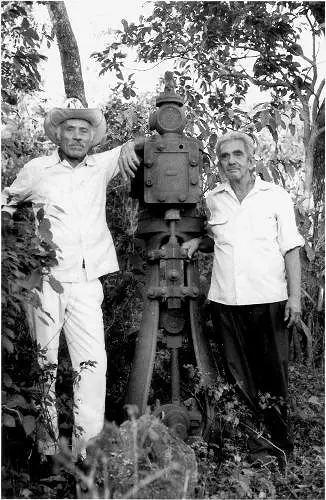Myths of Modernity
Peonage and Patriarchy in Nicaragua
Format:Hardback
Publisher:Duke University Press
Published:25th Jan '06
Currently unavailable, and unfortunately no date known when it will be back

Provides a history of daily life on coffee plantations in central Nicaragua between 1870 and 1950 and uses that history to argue that the coffee boom impeded rather than expedited the country's transition to capitalism
In Myths of Modernity, Elizabeth Dore rethinks Nicaragua’s transition to capitalism. Arguing against the idea that the country’s capitalist transformation was ushered in by the coffee boom that extended from 1870 to 1930, she maintains that coffee growing gave rise to systems of landowning and labor exploitation that impeded rather than promoted capitalist development. Dore places gender at the forefront of her analysis, which demonstrates that patriarchy was the organizing principle of the coffee economy’s debt-peonage system until the 1950s. She examines the gendered dynamics of daily life in Diriomo, a township in Nicaragua’s Granada region, tracing the history of the town’s Indian community from its inception in the colonial era to its demise in the early twentieth century.
Dore seamlessly combines archival research, oral history, and an innovative theoretical approach that unites political economy with social history. She recovers the bygone voices of peons, planters, and local officials within documents such as labor contracts, court records, and official correspondence. She juxtaposes these historical perspectives with those of contemporary peasants, landowners, activists, and politicians who share memories passed down to the present. The reconceptualization of the coffee economy that Dore elaborates has far-reaching implications. The Sandinistas mistakenly believed, she contends, that Nicaraguan capitalism was mature and ripe for socialist revolution, and after their victory in 1979 that belief led them to alienate many peasants by ignoring their demands for land. Thus, the Sandinistas’ myths of modernity contributed to their downfall.
“A skilled researcher and potent polemicist, Dore is at her best when she combines archival digging with colorful interviews to prove beyond doubt that political power and patronage, not market forces or the rule of law, have long determined who holds land in Nicaragua.” - Richard Feinberg, Foreign Affairs
“This book makes an important contribution to a growing literature on the contradictory nature of liberalism in Latin America. . . . The book is provocative, well written, and clearly argued. It will be essential reading for Latin American historians in general and those interested in gender, liberalism, and labor studies in particular.” - Ann Zulawski, American Historical Review
“This is a real gem of a monograph. Methodologically, Dore takes the combination of ethnography and archival work to a new level.” - Ben Fallaw, American Ethnologist
“Myths of Modernity demonstrates why an understanding of history is important to current policy debates and why a misguided analysis of rural class relations contributed to the eventual electoral defeat of the Sandinistas.”—Carmen Diana Deere, coauthor of Empowering Women: Land and Property Rights in Latin America
“As ideal a combination of fine-grained, historically rich ethnography; astute political economy; and powerful feminist scholarship as one could possibly hope for. A standard to emulate.”—James C. Scott, Yale University
“In this uniquely researched study, constructed in dialogue with generations of members of the Diriomo community, written records, scholarly debates, and revolutionary policymakers, Elizabeth Dore shows why debt peonage and land privatization in the Nicaraguan coffee boom failed to generate capitalism. Gender is an important element in her argument and one that economic and social historians can no longer afford to ignore.”—Mary Kay Vaughan, coeditor of The Eagle and the Virgin: Nation and Cultural Revolution in Mexico, 1920–1940
“A skilled researcher and potent polemicist, Dore is at her best when she combines archival digging with colorful interviews to prove beyond doubt that political power and patronage, not market forces or the rule of law, have long determined who holds land in Nicaragua.” -- Richard Feinberg * Foreign Affairs *
“This book makes an important contribution to a growing literature on the contradictory nature of liberalism in Latin America. . . . The book is provocative, well written, and clearly argued. It will be essential reading for Latin American historians in general and those interested in gender, liberalism, and labor studies in particular.” -- Ann Zulawski * American Historical Review *
ISBN: 9780822336860
Dimensions: unknown
Weight: 503g
272 pages